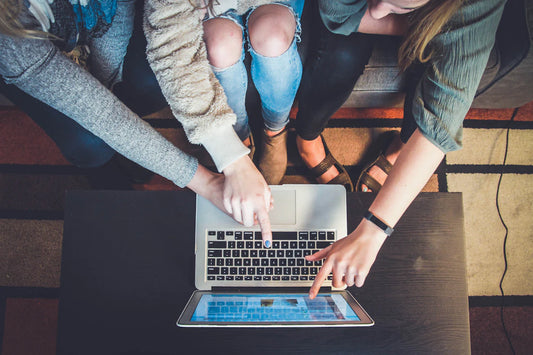In the fast-evolving world of remote work, where digital communication has become the cornerstone of business operations, one aspect often overlooked is the significance of privacy and security. As employees log in from various locations, using different devices, many organizations are beginning to understand the importance of privacy phones. These devices not only safeguard personal information but also enhance productivity in a remote work environment. In this article, we will delve into the role of privacy phones in remote work, exploring features, benefits, and why they should be an essential part of your tech arsenal.
Understanding Privacy Phones
Privacy phones are designed with user security in mind, incorporating advanced encryption and privacy features to protect sensitive information. In an age where data breaches are rampant and cyber threats are common, these devices serve as a shield for personal and corporate data alike. Two noteworthy examples of privacy-enhancing technology are the iPhone 14 Pro Max and CalyxOS, which prioritize privacy in their functionalities.
What Makes a Phone "Privacy-Focused"?
Through several key features, a privacy phone stands out from its counterparts:
- High-Grade Encryption: Provides a secure communication channel, protecting data from unauthorized access.
- Minimal Data Collection: Limits the gathering of user data, aligning with privacy regulations.
- Customizable Security Settings: Allows users to tailor their security preferences to their needs.
- Open Source Software: Some privacy phones, such as those running on CalyxOS, promote transparency and collaboration in security measures.
The Importance of Privacy Phones for Remote Workers
In the remote work landscape, employees may access sensitive company data from home, cafes, or public Wi-Fi hotspots. Privacy phones offer significant advantages in this setting:
Enhanced Security
Data breaches can result in devastating financial and reputational damage for businesses. By providing an extra layer of security, privacy phones can play a proactive role in mitigating these risks. Utilizing a device like the iPhone 14 Pro Max ensures built-in security features, including Face ID and encrypted messaging, leading to reduced chances of unauthorized access to sensitive information.
Maintaining Confidentiality
When employees communicate sensitive information, whether during video calls or messaging, they need assurance that their conversations remain confidential. Privacy phones come equipped with secure communication applications that encrypt dialogue and files, preventing eavesdropping and ensuring that trade secrets are for business eyes only.
Work-Life Balance
One often-overlooked advantage of using a privacy phone in remote work is the ability to separate work and personal life. By having dedicated devices that can compartmentalize work-related and personal tasks, employees can establish boundaries, leading to improved mental wellbeing.
How Privacy Phones Improve Remote Work Efficiency
Efficiency is crucial in a remote work setting. Let's explore how privacy phones contribute to an optimized work experience:
Streamlined Communication
Privacy phones typically come pre-installed with encrypted messaging and secure calling applications to ensure that communication remains clear and devoid of interruptions. With high-quality devices, remote workers can connect seamlessly with their teams, which is essential for collaboration.
Access to Secure Applications
Privacy-focused operating systems, such as CalyxOS, often provide secure access to applications tailored for productivity, project management, and communication. Organizations can avoid the perils of using unsecured apps that may compromise sensitive data.
Remote Device Management
Employers can implement remote device management policies that allow IT teams to oversee the security measures enforced on privacy phones. This is especially crucial concerning remote work, as the management of devices across various geographical locations can be challenging. Privacy phones allow for rapid response in the event of a security incident.
Best Practices for Using Privacy Phones in a Remote Work Environment
To maximize the benefits of privacy phones, remote workers should adhere to these best practices:
Regular Software Updates
Ensuring that both the operating system and applications are up to date protects against vulnerabilities. Privacy phones often have automatic updates, which can be enabled to guarantee seamless protection.
Utilize Multi-Factor Authentication
Enabling multi-factor authentication (MFA) adds an extra security layer that significantly reduces the risk of unauthorized access. This simple step is one of the most effective measures for safeguarding sensitive data on privacy phones.
Educating Employees on Cybersecurity
Companies should provide regular training on cybersecurity practices, emphasizing the importance of using privacy phones and maintaining their security features effectively. The more knowledgeable employees are about potential threats, the better equipped they will be to defend against them.
Future of Privacy Phones in Remote Work
As remote work continues to grow and evolve, the demand for enhanced privacy solutions is expected to follow suit. Organizations will increasingly recognize the need to invest in privacy technologies to protect their digital assets. Emerging trends indicate that privacy phones will not only become a standard for remote workers but will also play a pivotal role in shaping corporate cybersecurity policies. Moreover, the compatibility between privacy phones and advanced technologies like AI-driven security measures will pave the way for a new era of secure communication.
Integration of Privacy Phones with IoT Devices
As remote work environments grow more complex, many employees rely on IoT devices for productivity—everything from smart assistants to home office equipment. Privacy phones can serve as a central hub, where user data remains secure while managing and controlling various devices. This integration epitomizes the power of privacy phones in creating a safe, efficient, and innovative remote work setup.
Rethinking Corporate Policies
With the rise of privacy phones, it's time companies rethink their corporate policies regarding employee devices and data management. Security-centric policies can enhance protection and instill greater confidence among employees, knowing they are working in a safe environment.
Empower Your Remote Workforce
As remote work continues to integrate deeply into our professional lives, the adoption of privacy phones is becoming indispensable. By recognizing the importance of safeguarding data and empowering employees with secure communication technologies, organizations can foster a productive, secure, and engaged remote workforce. Incorporating tools such as the iPhone 14 Pro Max or systems like CalyxOS ensures that employees are protected, enabling them to bring their best self to work—wherever that may be. Embracing privacy phones today is not just a precaution but a step towards a more resilient tomorrow.







